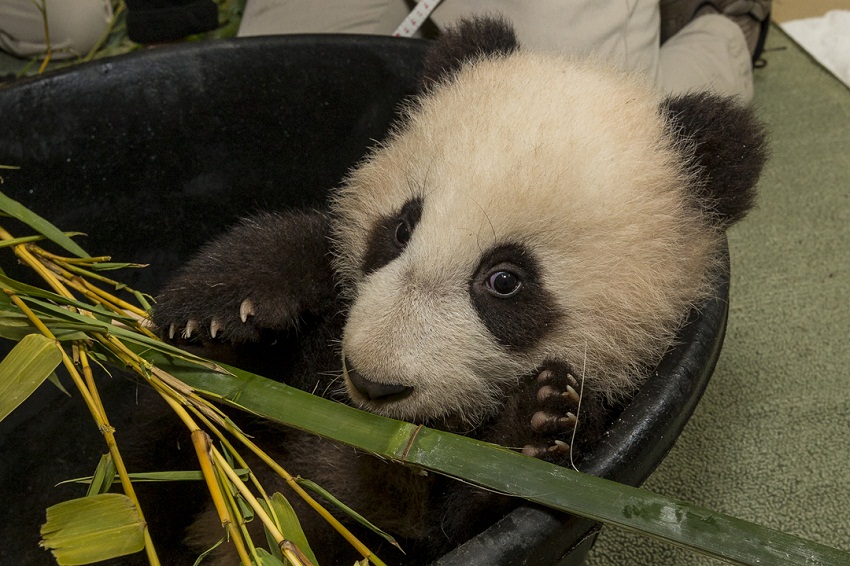Baby Panda Rings in 2013

This little panda cub rang in the New Year with a clean bill of health.
At a checkup Tuesday (Jan 1), caretakers determined that Xiao Liwu — the latest giant panda born at the San Diego Zoo — is healthy and getting stronger. The cub continues to sprout baby teeth and is mouthing, chewing and teething a bit, zoo officials said. At 22 weeks old, the baby bear weighs 16 pounds (7.3 kilograms) and measures just over 30 inches (76 centimeters) from nose to tail.
"Xiao Liwu was very active, very strong, and very exploratory during his exam this morning," P.K. Robbins, senior veterinarian at the San Diego Zoo, said in a statement Tuesday. "He is moving about very quickly and exhibiting great confidence in his strength and climbing abilities. At this rate, I think we will see him venturing into more areas of the giant panda habitat very soon."
In fact, just like other tots over the holidays, Xiao Liwu played with new toys. During his checkup on Dec. 27, the growing cub was distracted by a doughnut-shaped plastic ring big enough for the baby bear to sit in, a stick of bamboo and a plastic ball, zoo offiicals said.
Xiao Liwu, whose name means "Little Gift," was the sixth cub born to the zoo's panda mom Bai Yun. All the San Diego Zoo giant pandas are on a research loan from China, the only place where the species still exists in the wild. Four of Xiao Liwu's siblings have already been moved out of California to join the Chinese panda conservation and breeding program.
Captive breeding is an important way to study and conserve the endangered species, as just 1,600 giant pandas are thought to be left in the wild. In addition to habitat loss from human activities and low reproductive rates, giant pandas' survival is also threatened by climate change. A study released in the journal Nature Climate Change last year found that global warming could wipe out much of the bears' chief food source, bamboo, over the next century.
Follow LiveScience on Twitter @livescience. We're also on Facebook & Google+.
Sign up for the Live Science daily newsletter now
Get the world’s most fascinating discoveries delivered straight to your inbox.










